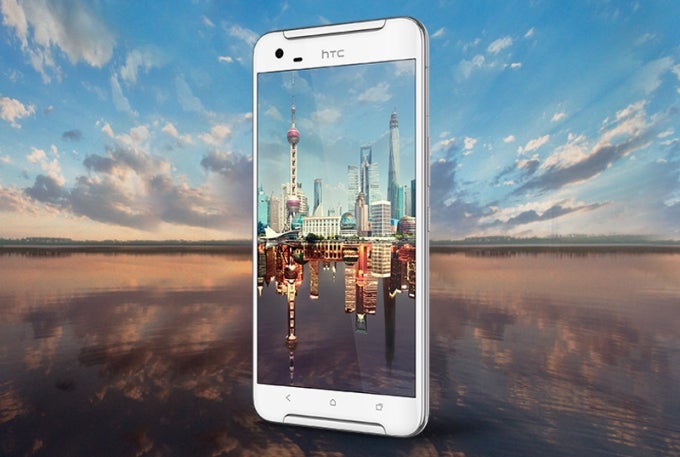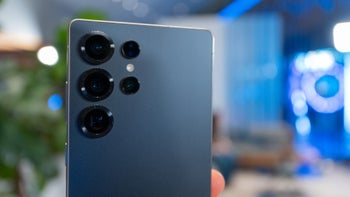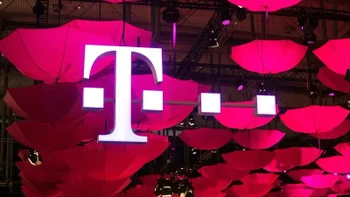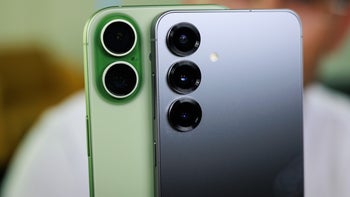The HTC One X9 is now official... again: 5.5-inch 1080p display, Helio X10 SoC, 13MP primary camera

Update: HTC just re-announced the One X9 at MWC 2016.
The front of the phone is dominated by a 5.5-inch IPS display running at a resolution of 1080 by 1920 pixels. Under the panel, HTC has placed a trio of capacitive buttons. This may seem a bit off given that HTC's recent flagships have all adopted on-screen navigational buttons, but capacitive buttons are currently appreciated in Asian markets, which appears to be HTC's target with the One X9. The design of the speakers, which appear to be carved in the upper and lower bezels, is another interesting design choice that HTC adopted with the One X9.
The back of the HTC One X9 is mostly similar to that of the One A9 with the exception of a plastic band at the top. While the plastic band doesn't stand out as much as the big bulge on the back of the Nexus 6P, we can't help but notice some similarities. Just like with the capacitive buttons and the design of the speakers, the plastic band is a departure from the simplistic clean design that HTC adopted on its previous phones, for the better or worse.
Under the hood of the HTC One X9 beats the heart of a MediaTek Helio X10 SoC with a 2.2GHz octa-core processor. This is the same chip that HTC used on the One ME, an Asian-exclusive spinoff based on the One M9 flagship. In the memory department, the One X9 is equipped with 3GB of RAM, 32GB of internal storage space, and a microSD card slot.
In the imaging department, the One X9 comes with a 13MP primary camera with OIS that can shoot RAW photos and 4K videos. On the front, there's a 5MP secondary sensor with an f/2.0 lens.
All of these specs are powered up by a 3000mAh non-removable battery. HTC says that the One X9 is compatible with 5V / 1.5A fast-charging. This standard is not as fast as the modern 5V / 2A format used by flagships such as the Nexus 6P, but it's still about 30% compared to the usual 2V / 1A format.
This leads us to the price. In China, the HTC One X9 will sell for 2399 Yuan, or about $370 at the current conversion rates. This makes the One X9 cheaper than the HTC One A9, which is currently priced at 2799 Yuan in China ($432). It remains to be seen if the HTC One X9 will make its way towards Western markets such as Europe or the United States.
source: HTC
Follow us on Google News














Things that are NOT allowed:
To help keep our community safe and free from spam, we apply temporary limits to newly created accounts: